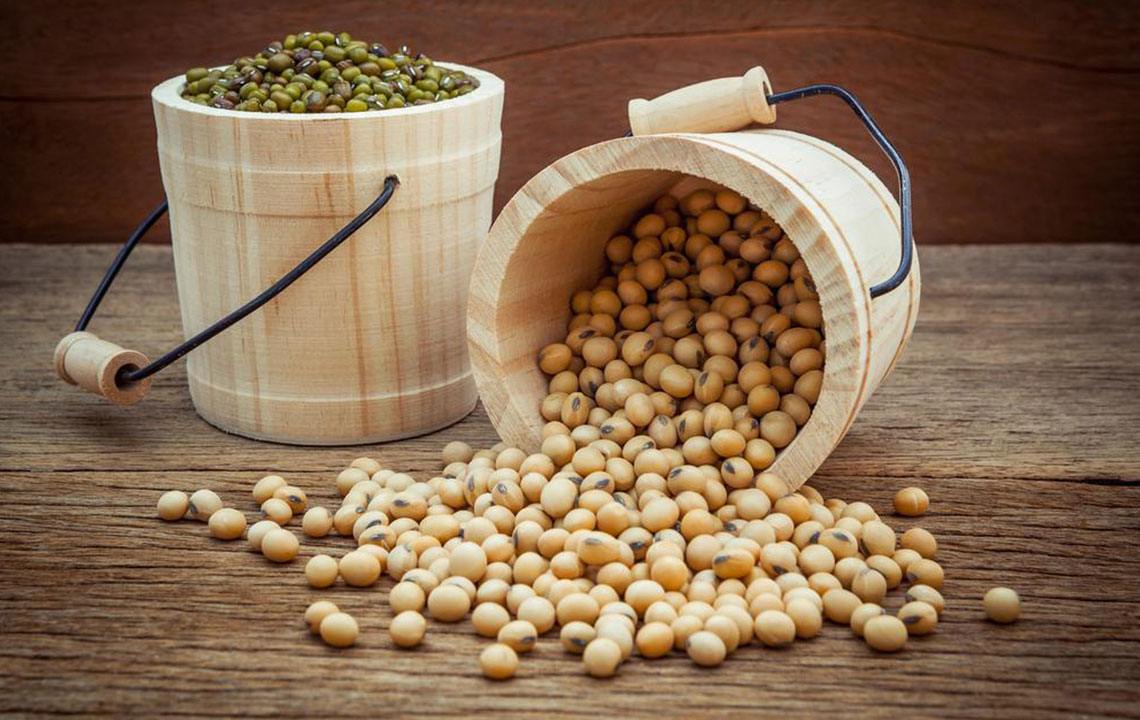All You Need to Know about the Benefits and Deficiency of Potassium
Potassium is the third highest amount of mineral present in your body cells. Too high or too low amount of potassium can be dangerous. In case of high or low levels of potassium, you may need to change your eating habit. Be aware of foods that are low or high in potassium.

Why do we need the right amount of potassium?
There are many reasons for you to consume an adequate amount of foods with potassium daily. Given below are those reasons:
- It helps proper working of your nerves, kidney, brain, and muscles.
- The right amount of potassium in your body also helps to keep your heart beating at a steady rate.
- It maintains fluid and electrolyte balance in your system.
- It keeps the body hydrated.
- It supports cellular function in conjunction with sodium.
- It lowers blood pressure.
- It reduces the risk of heart stroke.
- It Increases bone density.
- It decreases muscle cramps.
- It utilizes the carbohydrates you consume.
- Everyone requires potassium to build protein and muscle.
Dangers of Low Potassium
A deficiency in potassium is undesirable and can lead to:
- Tiredness
- Irregular bowels
- Losing temper
- Stiffness of muscles
- Weight gain
- Blood pressure abnormality
- Heart-beat anomaly
- Sickness
- Swelling of belly
- Dejection
- Rheumatism
How Much Potassium Should You Be Taking In?
The recommended intake of foods with potassium for male and female adults is 4,700 milligrams per day.
Foods with Potassium
Potassium is available in wide range of foods. You can choose from a wide variety of foods with potassium as one of the means to maintain your potassium intake. The list given below highlights the potassium content in various foods (expressed in mg per 100g):
Fruits & Veggies
The potassium content for some of the common fruits and vegetables are:
- Apple including skin – 90 mg
- Banana – 350 mg
- Grapes – 270 mg
- Lemon and strawberries- 160 mg
- Orange – 150 mg
- Pineapple – 250 mg
- Plums – 260 mg
- Prunes – 720 mg
- Raisins – 860 mg
- Watermelon – 60 mg
- Bamboo shoots – 530 mg
- Beetroot – 350 mg
- Chickpeas– 400 mg
- Mushrooms – 470 mg
- Sweet Potato – 670 mg
- Carrots – 220mg
- Cauliflower – 350 mg
Milk And Milk Products
Fresh and skimmed milk contains 150mg of potassium while cottage cream contains 50 mg.
Nuts
Nuts are a rich source of potassium. Foods with potassium also include nuts which can be helpful in various health-related issues like weight loss, etc.
- Almonds – 860mg
- Chestnuts and roasted Cashew Nuts – 500 mg
- Coconut – 750 mg
- Peanuts – 470 mg
- Pistachio nuts – 970 mg
- Walnuts – 690 mg
Fish and Seafood
Eating fish and seafood is a good way to increase potassium content in your body:
- Baked Cod and Sardines – 350mg
- Crab, boiled and Oyster- 270 mg
- Scallops, steamed – 480 mg
Cereals, Biscuits, Cakes, Desserts
Who said desserts are unhealthy? Desserts also contain a certain amount of potassium.
- Chocolate Biscuits – 230mg
- Rye Crispbread – 500 mg
- Bran, wheat – 1160 mg
- Fruit Cake – 390 mg
- Baked Flounder – 585 mg
- Cornflakes– 125 mg
- Chapatti – 160mg
- Brown Bread – 200 mg
Meat and Meat products
- Bacon and boiled chicken– 300mg
- Beef burger – 340 mg
- Chicken livers – 290 mg
- Hamburger – 190 mg
- Beef fillet steak – 470 mg
- Lamb, boiled– 190 mg
- Lamb chops – 250mg
Final Thoughts On Foods With Potassium
Without a doubt, potassium is an essential component of a healthy diet. It is both an essential mineral, and an electrolyte. With these double elements comes a host of potassium benefits. You get the benefits when you consume an adequate quantity of potassium-rich on a regular basis. In contrast, what happens if you don’t get adequate potassium diet on daily basis? Then you land yourself to a lot of unwarranted potassium deficiency symptoms. People suffering from kidney disorders like the kidney stone, chronic kidney disease, etc. cannot consume foods with high potassium content. When the kidney fails, it doesn’t help to remove the excess potassium from the body. Hence, kidney patients should not consume foods with potassium so that the potassium level can be maintained.
All along you may have known that banana and one or two other foods are rich in potassium. The list showing foods with potassium will help you to expand your options. You can ensure to get your daily need of potassium. There are actually many fruits and vegetables, nuts, and even fish that have this vital mineral. There are so many delightful foods and lip-smacking recipes rich in potassium. This ensures that you do not to fall short in potassium in your system.
Hidden Potassium
Some foods and drinks may have undeclared potassium. It is not mandatory for food labels to include the amount of potassium, but some do. Certain herbal supplements for diets may also include it. This mineral is also found in diet or protein drinks. It is also present in sports drinks. The idea is to replace potassium lost during exercise.


